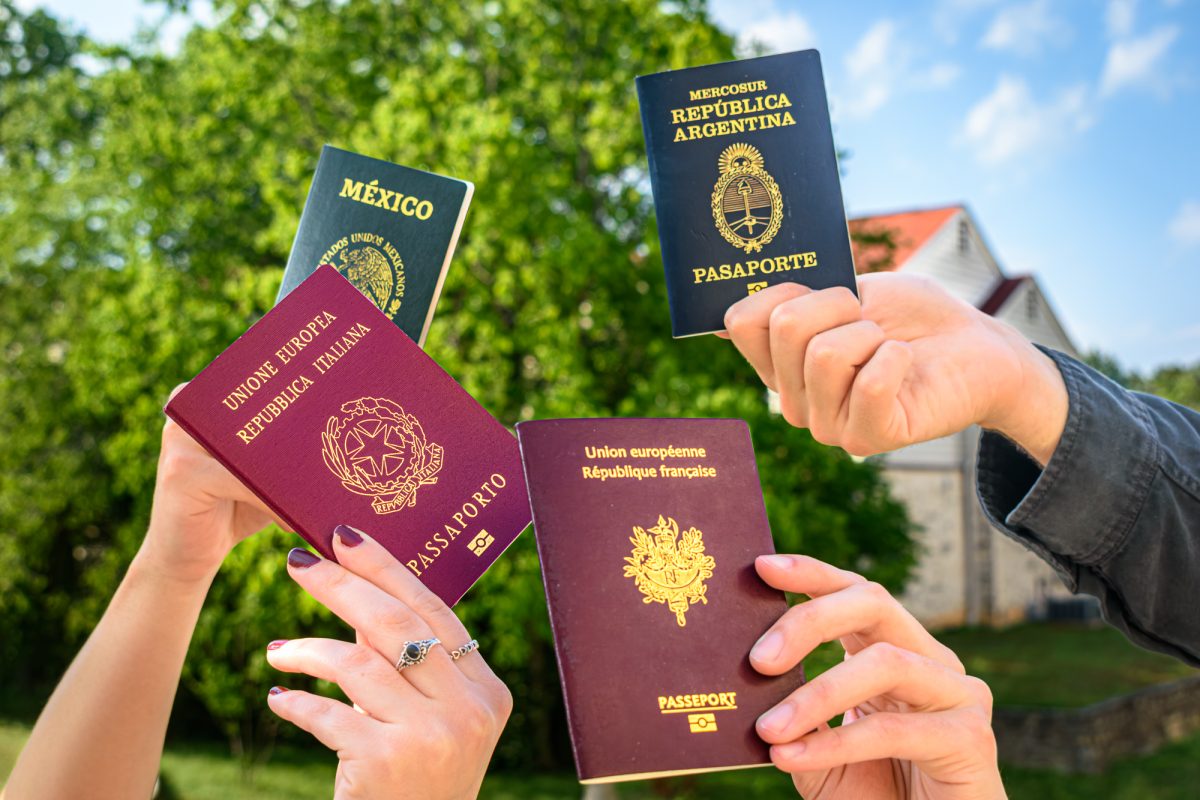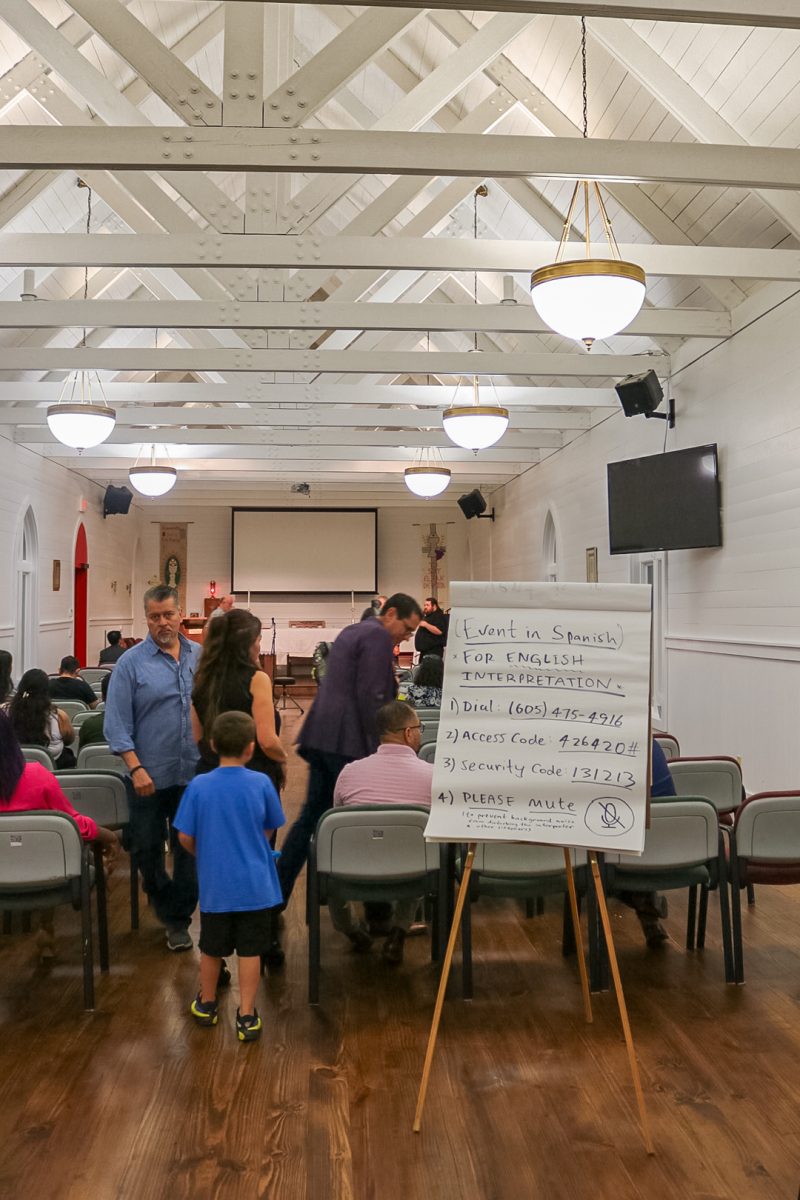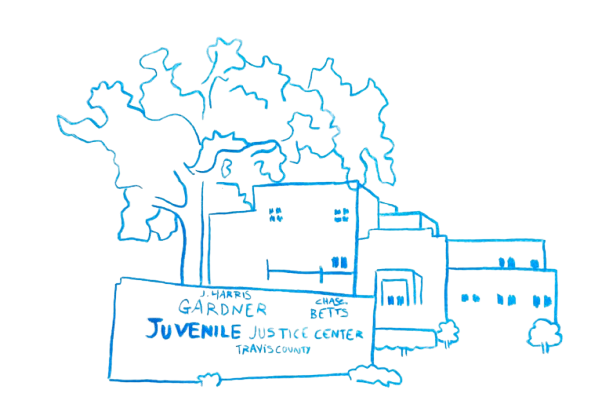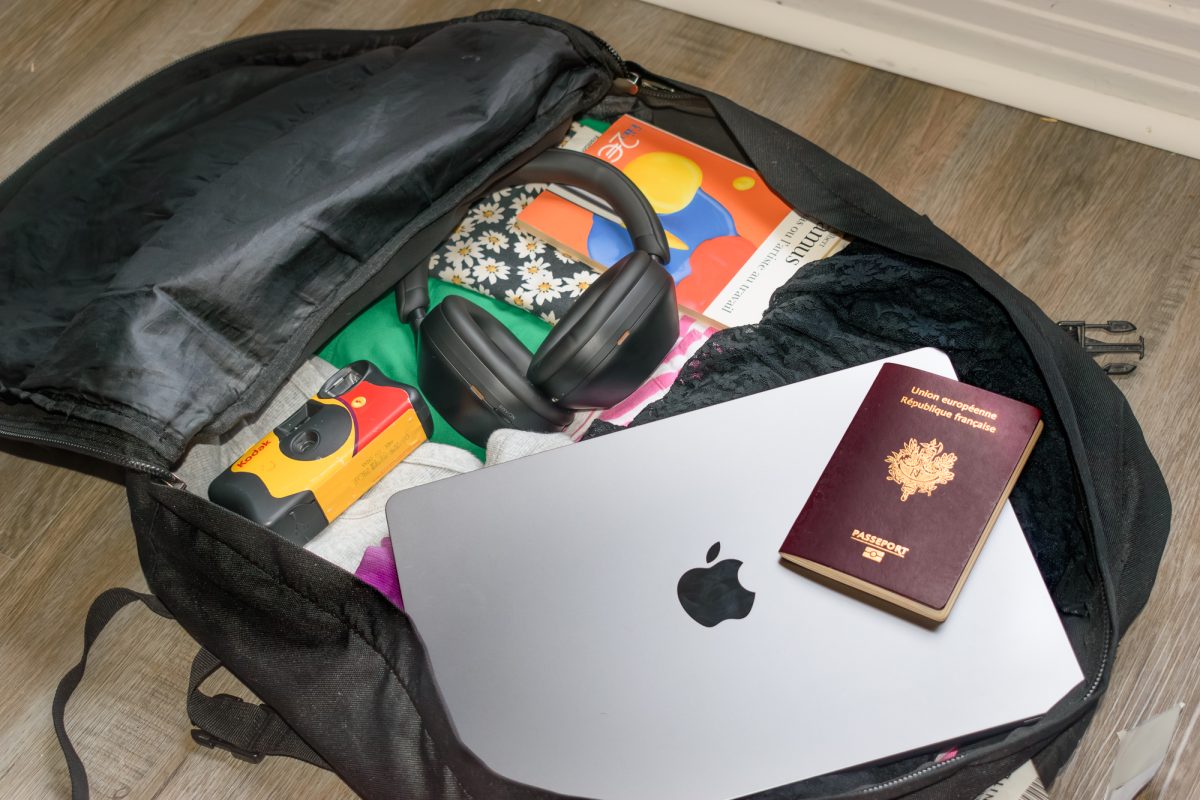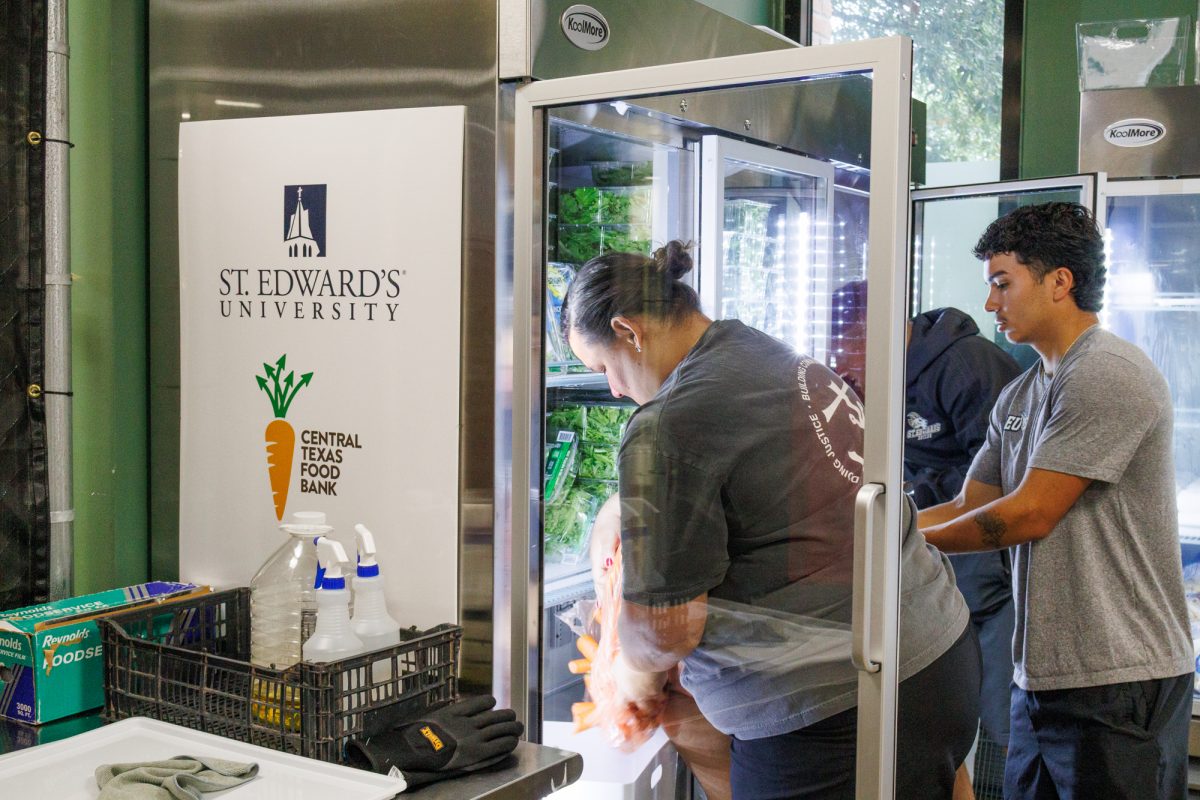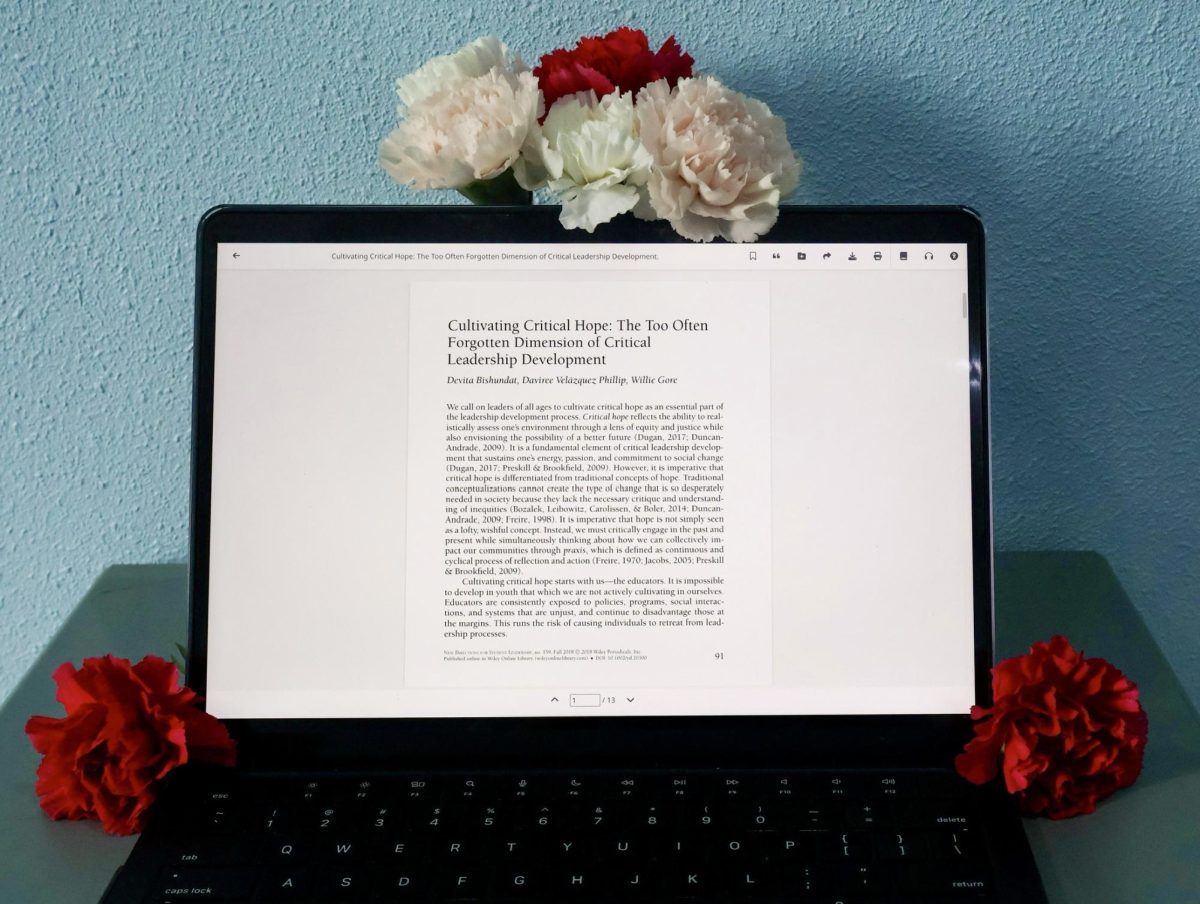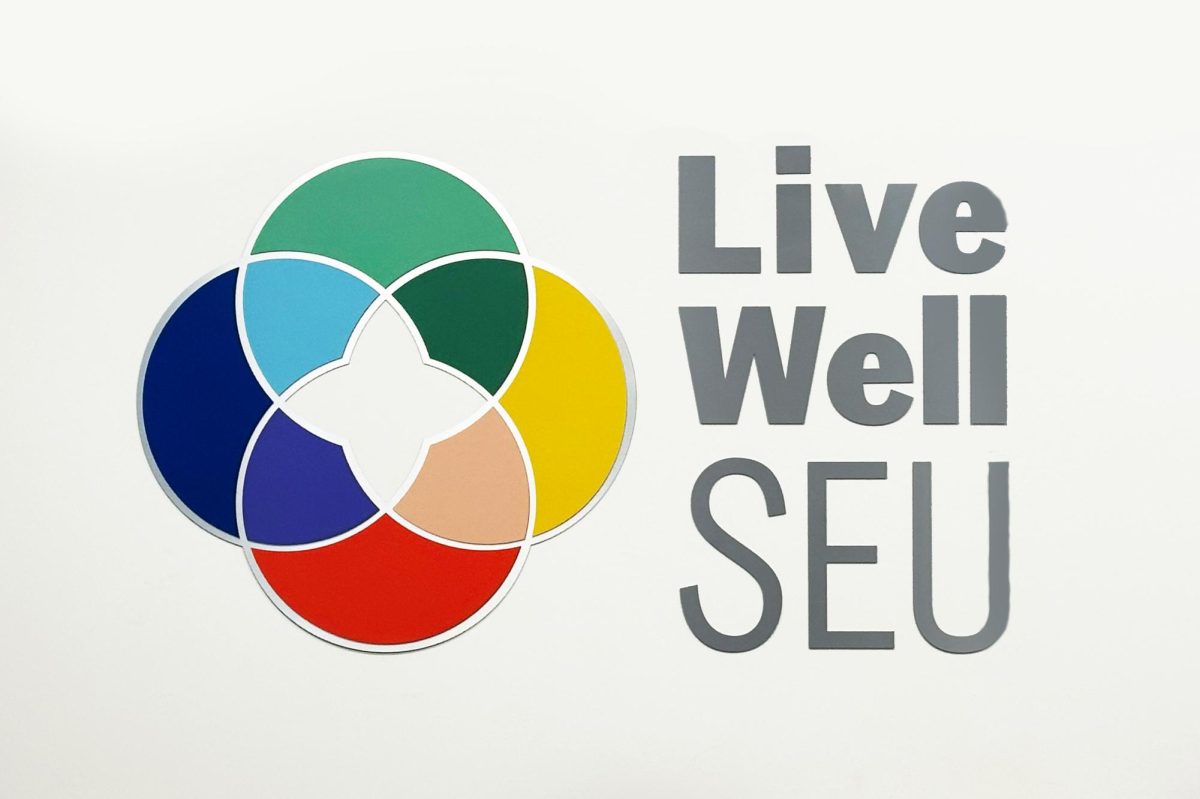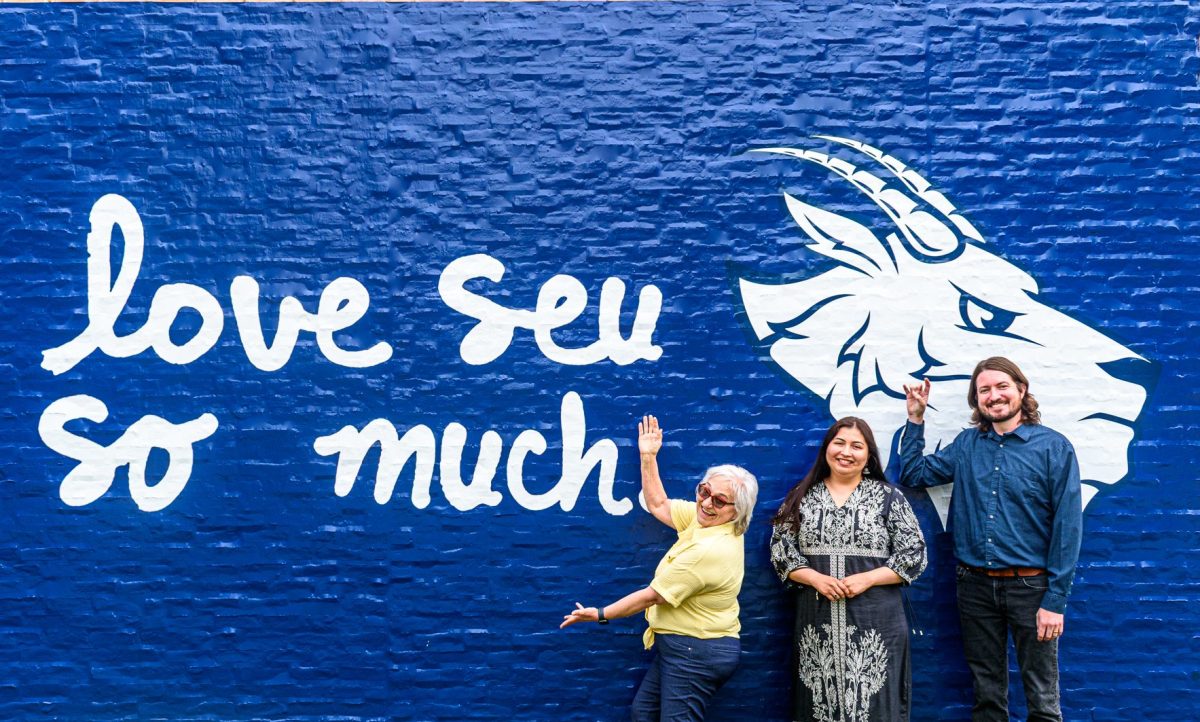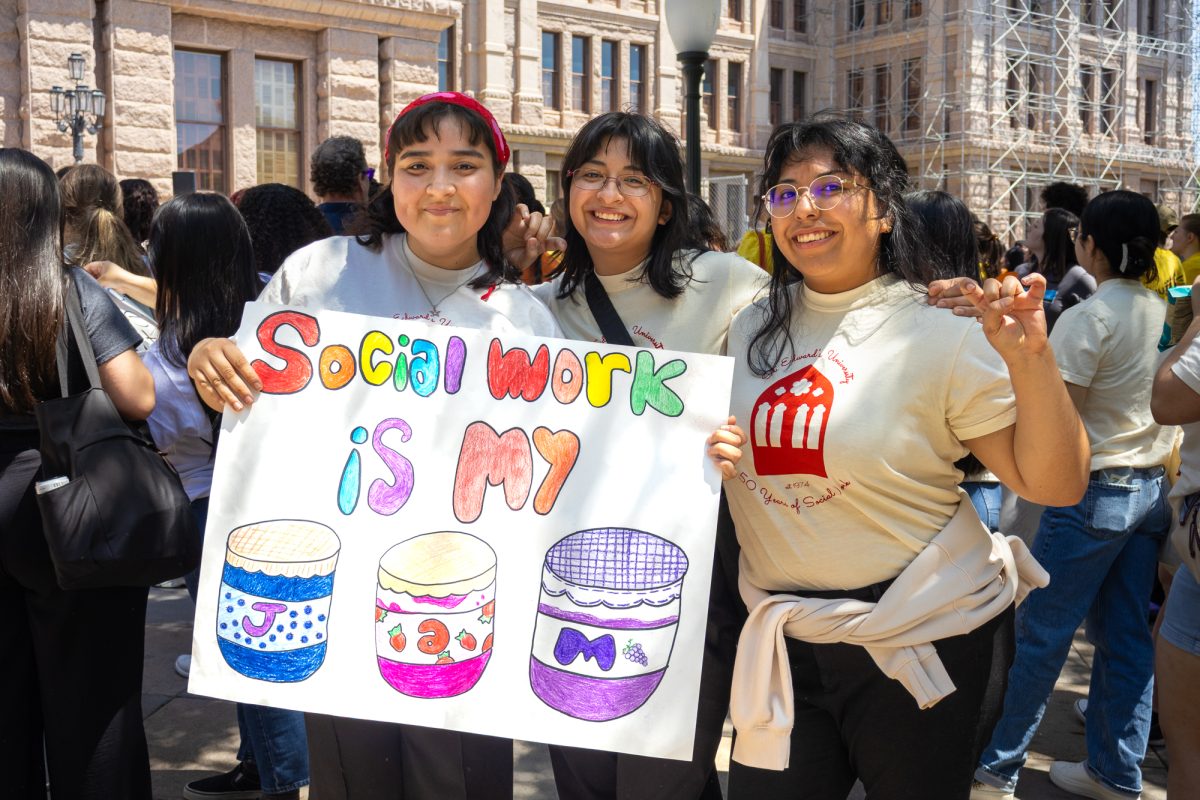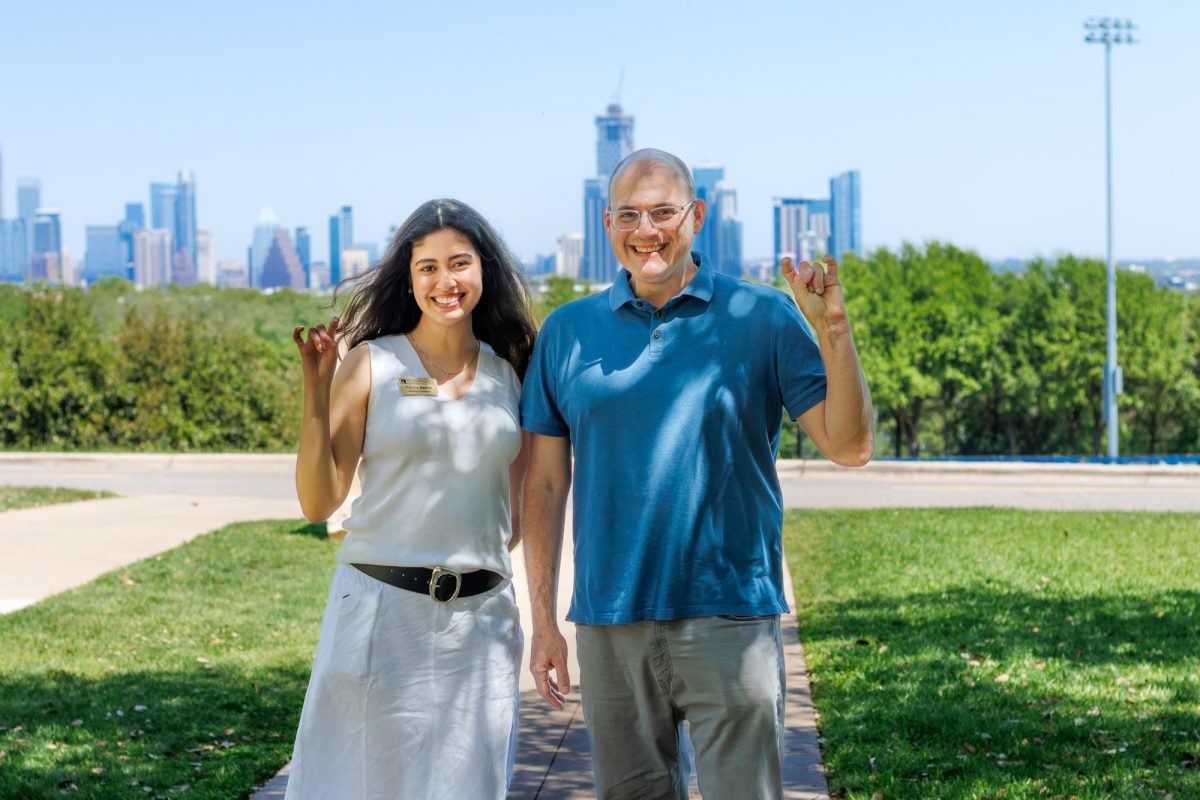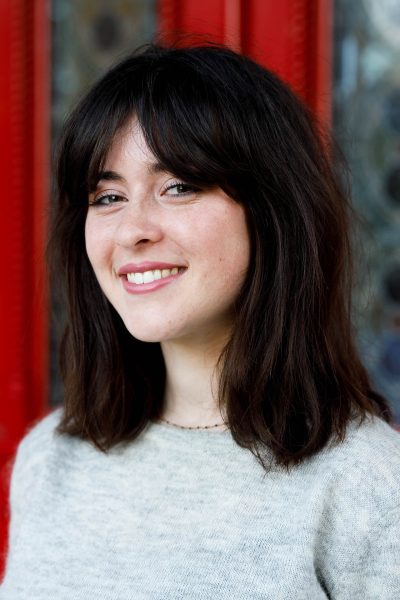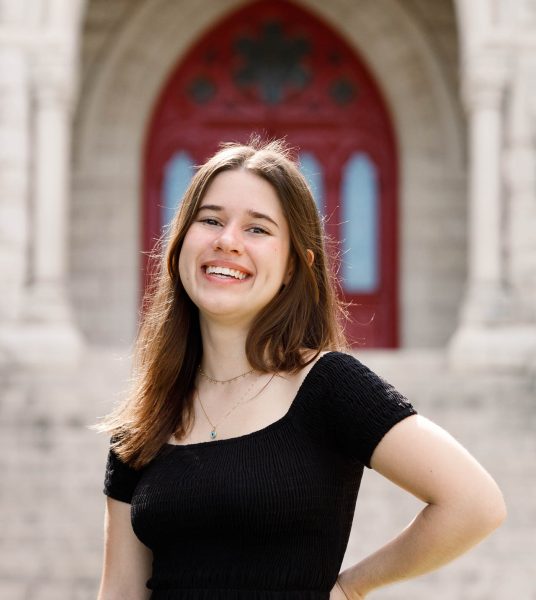Editor’s Note: Hilltop Views acknowledges the uncertainty that international students around the U.S. are facing as a result of deportations and policies revoking student visas. For this reason, international students quoted in this article are identified by first names only. We hope that these articles highlight how international students contribute to our campus community and how our university works to support them and promote their academic success.
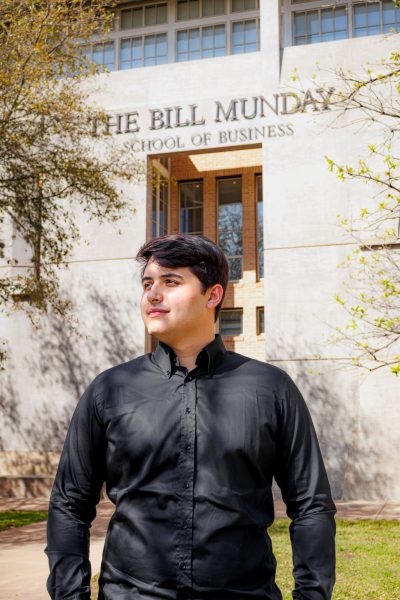
Business administration first-year student from Brazil, João, joined the St. Edward’s community earlier in the spring semester. He always knew that studying abroad was something he wanted to do, especially after living in Rome with his brother and before moving to Malta to immerse himself in a language exchange program. His unique experiences motivated him to take the leap and after a year and a half back in Brazil, João realized that he wanted to study business in the U.S.
“O que me convenceu no final (a vir para a St. Edward’s) foi o David (Bernay),” João said. “Eu cheguei a fazer entrevista com as outras universidades mas eu não senti aquela sensação boa. Mas aqui não. Quando eu vi que a St. Edward’s era uma universidade católica, isso já influenciou e me deu mais interesse. Eu vi todas as oportunidades, vi que a nossa faculdade de business é uma escola certificada, e o David tirou todas as minhas dúvidas, foi super simpático, e isso me convenceu. Quero ir para a St. Edward’s, vai ser muito boa a minha experiência e vai ser o lugar perfeito.” (What convinced me (to come to St. Edward’s) was David (Bernay),” João said. “I did interviews with the other universities I applied to, but I never had a good feeling about them. But that wasn’t the case here. I saw that St. Edward’s was a Catholic university, so that already influenced me and sparked my interest. I saw all of the opportunities offered here, saw that our business school is accredited, and David answered all of my questions, was extremely friendly, so that convinced me even more. I wanted to attend St. Edward’s — my experience would be great and it would be the perfect place for me.”)
Even though he has only been here for a semester, João is extremely impressed by the resources that the university offers, such as the Writing Center, the success coaches and all of the departments that are specific to each of his potential needs. He recalls feeling extremely supported, not only throughout his admission process but also now that he is settled on campus. João felt confident that St. Edward’s was the right choice, but the support systems and initiatives available have been a game changer, encouraging him to stay on the hilltop for his entire undergraduate journey.
“O que me ganhou foram as turmas reduzidas,” João said. “A primeira coisa que eu pensei, que passou pela minha cabeça, quando eu tive a minha primeira aula aqui foi ‘Nossa, se eu tivesse em uma faculdade que tivesse turmas maiores, eu não ia conseguir aprender nada.’ Aqui o professor olha no meu olho, eu olho no olho dele, ele me conhece, consigo tirar dúvidas, é muito bom mesmo e ajuda demais.” (“What won me over were the reduced class sizes,” João said. “The first thing I thought, the first thing that went through my mind, when I had my first class here was ‘Wow, if I had gone to a bigger university with bigger class sizes, I wouldn’t be able to learn and absorb a single thing.’ Here the professors look at me in the eye, I look at them in the eye. They know me, I can ask all of my questions, it’s amazing and extremely helpful.”)
His experience has been positive so far, but it hasn’t been without challenges. Like many other international students, his prior education in English taught him the formal language, making it difficult to communicate naturally with native speakers. This language barrier often leads to insecurities and confusion. João is grateful for the resources he has access to, but he notes that the absence of some language support makes his experience here more difficult than it needs to be.
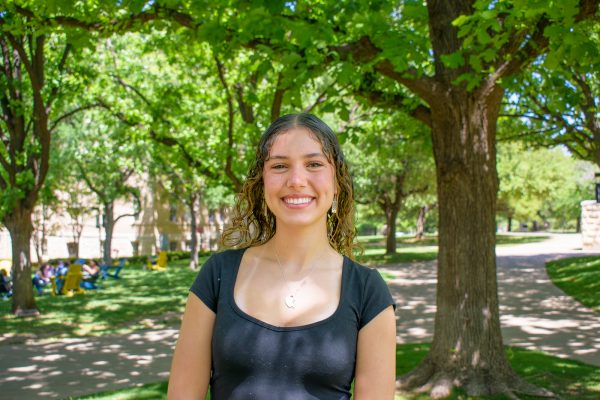
Leaving Buenos Aires, Argentina, was a “now or never” opportunity for international business first-year student Bianca. However, unlike most international students, she already had a family connection at St. Edward’s.
“Yo creo que sí me ayudó bastante, porque al principio, esos días que estaba sola, lo tenía a él que me preparaba comida,” Bianca said. “Me presentó a sus amigos, así que también de esa forma conocí más gente.” (“I think it helped me a lot, because in those early days when I was alone, I had him that cooked for me,” Bianca said. “He introduced me to his friends, so that’s also how I got to meet more people.”)
She first discovered the university by joining a family member on a campus tour three years ago. After that tour, she knew she wanted to come here. She also considered the University of Texas, but their business program does not accept first-year students in the spring.
“Conocí St. Edward’s porque hace tres años, cuando mi familiar estaba buscando dónde ir a la universidad,” Bianca said. “Creo que me gustó más a mí que a él, sinceramente. Estaba fascinada. Era como una película hecha realidad.” (“I discovered St. Edward’s three years ago, when a family member was looking for colleges,” Bianca said. “And honestly, I think I liked it more than he did. I was fascinated. It felt like a movie come to life.”)
The application and enrollment process was easy for her, especially with the help of Bernay, whom she met during the campus tour. Bernay answered every doubt she had, recalling that “Él me respondía en una hora, no importaba la hora ni el día.” (“He would answer me in an hour, it didn’t matter the time or the day.”) She is currently learning about all the different campus resources available through her required freshman seminar class.
Like many international students who arrive early, Bianca found herself on an empty campus and was grateful to have her mother by her side as she settled in.
“Estaba muy sola porque llegué dos o tres días antes, entonces no había nadie, ningún dining hall abierto, literalmente no había nadie,” Bianca said. “Era como un campus fantasma. Pero después, empezó a llegar gente, en orientación, al principio estaba medio ansiosa, pensando ‘¿Qué voy a hacer ahora?’ Gente nueva, gente diferente, otro idioma. Pero después estuvo todo bien, porque conocí a mis amigos que tengo ahora. Los conocí casi todos ahí, y muy bien.” (“I was really lonely because I arrived two or three days early, so there was no one, no dining hall was open, literally no one was there,” Bianca said. “It felt like a ghost campus. But then, people started arriving during orientation, and at first I was kind of anxious, thinking: what am I going to do now? New people, different people, another language. But then everything was fine, because I met my friends — the ones I have now — I met almost all of them there, and it was really great.”)
One of the hardest parts of coming here was leaving her close-knit group of friends, whose dynamic had changed since they all started college. On the hilltop, Bianca is still building her circle of relationships. She notes that the campus has a nice community of Latino students, with whom she mostly hangs out. Bianca acknowledges that culture shock has made it more difficult to connect with American students.
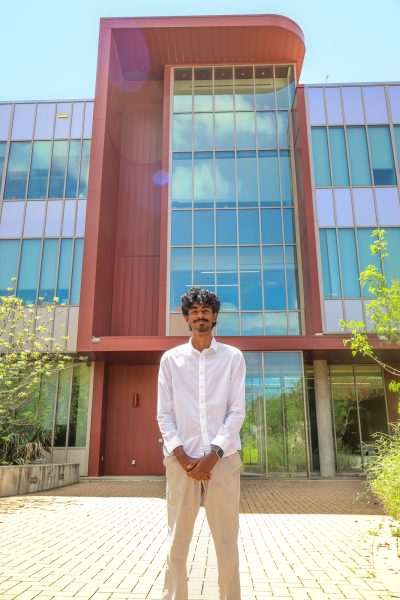
Geo, a computer science freshman, was encouraged by his parents to apply to American universities. Coming from India, Geo developed a global perspective early on, having lived in Dubai and Nigeria for several years growing up. Although he had never been to the U.S. before St. Edward’s, his previous international experiences sparked a desire to explore the world and experience other cultures.
Despite his international lifestyle and independence, Geo describes the process of going abroad by himself as very uncertain.
“If you are not prepared for the struggles to get the visa, I think you should always have a backup plan if you are coming from abroad,” Geo said.
The initial steps to come to the U.S. were challenging, but Geo recalls positive first impressions of Austin — especially the beauty and scale of the city. He was also impressed by the university, which reminded him of the small schools he had previously attended. A key moment was the final session of orientation, which made him feel welcomed and motivated him to step out of his comfort zone.
On top of adjusting to classes and his new environment, Geo’s main goal was to find a job. He wanted more independence from his parents, but as a first-year international student, he faced several hurdles along the way. However, after following peers’ advice, he leaned on Handshake, which helped him find a position at the Recreation and Athletic Center as a facilities staff member.
“Nothing could really scare me out of this,” Geo said. “Now that I’ve gained independence, I’m trying to balance that independence with not being a nuisance and actually trying to focus on everything. I knew that at the end of the day, I’m here not to spend my time around, I’m here to get a degree, so I need to maintain certain things and only aside from that, the luxuries come in.”
Beyond logistics, Geo has also faced emotional difficulties. Homesickness and nostalgia for familiar food became even more prominent. To cook comforting meals, Geo relies on The Huddle — the on-campus food pantry — which gives him access to ingredients that let him prepare flavorful and healthy dishes.
International affairs first-year Marie, a student from Paris, learned about the Moreau scholarship — offered through the Congregation of Holy Cross at her high school — from her sister, who applied two years ago. Marie explains that her family and friends supported her decision, letting her make it freely without pressure from either side.
Traveling from a young age helped Marie develop an openness to the world. While she describes her life in France as perfect, with no reason to leave it, her desire to discover new cultures and meet new people was stronger.
On the hilltop, she feels well-integrated but finds it harder to make friends in class due to changing schedules; unlike in France, where fixed class groups make bonding easier. However, Marie considers herself lucky to have found the right people at orientation. Playing lacrosse has also been a significant part of her integration, as she sees her teammates three times a week for two hours.
Still, taking the big leap at 18 was not easy. With her family, friends, and boyfriend in Paris, their distance is one of the factors that weighs the most on her consideration of returning to France. Another difficulty she encountered was readjusting to the academic workload after high school.
“Je me suis sentie un peu perdue le premier semestre à St. Ed’s — je n’avais pas mes repères culturels et relationnels, mais je n’avais pas non plus mes repères scolaires,” Marie said. “Je ne savais pas trop comment bosser. Et ce qui m’a vachement déstabilisée, c’est que si je n’ai pas un cadre, moi je me laisse aller, et le pire c’est que même si j’avais plein de temps, je ne le rentabilisais même pas. La rigueur française me manquait. Je sais que je me suis pas mal comparée avec les autres à ce moment-là en me disant que je ne faisais rien, alors que c’est juste différent du lycée, ce n’est pas comparable parce que je vis et apprends des choses, je grandis en maturité.” (“I felt a bit lost the first semester at St. Edward’s — I didn’t have my cultural and relational bearings, but I also didn’t have my academic bearings,” Marie said. “I didn’t really know how to study. And what really threw me off was that if I didn’t have a structured framework, I let myself go, and the worst part was that even with plenty of time, I didn’t make the most of it. I missed the French rigor. I know I compare myself a lot with the others at the time, telling myself I was doing nothing, but it was just different from high school. It’s not comparable because I am experiencing and learning new things, growing in maturity.”)
One aspect she appreciates about American education is the academic flexibility it offers.
“En France, on ne pourrait jamais trouver un parcours qui permette de croiser toutes ces matières,” Marie said. “Management et affaires internationales ça n’a rien à voir. Moi je vois le lien mais les gens pas forcément.” (“In France, you would never be able to find a course that combines all these subjects,” Marie said. “Management and international affairs – they seem unrelated. I see the connection but others don’t necessarily.”)
She explains that almost anything seems possible in the U.S., and knows that if she returns to France, she will be “bien plus audacieuse” (“much more daring”).
“De venir, ça m’a appris à être vachement plus autonome et indépendante, et ça m’a donné confiance en moi, de savoir que je suis capable de faire ça,” Marie said. “Puis, ici la flexibilité te permet de tenter et oser beaucoup plus. Et ce n’est pas parce que j’ai envie de rentrer en France que je regrette du tout cette année ici, je me rends compte de tout ce que ça m’a apporté et ça m’a fait grandir.” (“Coming here has taught me to be much more independent, and it has given me the self-confidence to know that I am capable of doing this,” Marie said. “Here, the flexibility allows you to take more risks and try more things. Just because I want to go back to France doesn’t mean I regret this year here at all. I realize everything this experience has brought me and how much it has made me grow.”)
Despite coming from different countries and backgrounds, all four students faced similar challenges adjusting to life at St. Edward’s. From leaving their loved ones behind to navigating unfamiliar environments and language barriers, each had to overcome emotional and cultural obstacles — experiences that highlight the uniqueness of the international student journey.
What unites them, and many others, is a shared sense of resilience, courage and determination to succeed, step outside their comfort zone and embrace new opportunities.
They found support in the availability of admissions staff, the welcoming atmosphere of orientation and opportunities for involvement across campus. Bianca and Marie both emphasized that orientation was where they met most of their friends, while João and Geo recall how it eased their transition by familiarizing them with campus life. Studying abroad has also given them independence and self-confidence, as well as a greater appreciation of where they come from and what makes them different from others.
“Déjà, il y a un côté où t’es l’autre, enfin c’est plus la norme d’être Français,” Marie said. “En France, chaque fois qu’il y avait un élève australien ou international, tout le monde était là : ‘oh trop stylé, c’est quoi ta vie là-bas?’ Là, tu te mets dans les baskets de: ça fait quoi de ne pas être ‘la norme.’ C’est enrichissant. Puis tu découvres une autre culture tout en apportant ton point de vue.” (“First, there is an aspect where you’re the other — being French is no longer the norm,” Marie said. “In France, every time there was an Australian or international student, everyone would be like, ‘Oh that’s so cool, what’s your life like over there?’ Now, you put yourself in the shoes of: what is it like not to be ‘the norm.’ It’s enriching. And you discover another culture while also bringing your own perspective.”)
Beyond the resources already implemented by the university, there is room for improvement — especially when it comes to language support.
“Eu até fui atrás de saber disso, cheguei a perguntar para a minha success coach se tinha alguma coisa de inglês, alguma aula, ajuda ou suporte,” João said. “Se tivesse, eu com certeza faria porque eu acho que ajudaria bastante. Algum acompanhamento, aula de conversação, mas infelizmente não tem nada aqui. Eu acho que deveria ser implementado.” (“I even tried to see if they had anything like that here, I even asked my success coach if there were any supplemental English classes, some sort of help and support,” João said. “If there were anything of that nature, I would definitely do it because I think it would be really helpful. Some sort of support, conversational lessons, but sadly there isn’t anything of that nature being offered here. I think it would be nice to have an initiative like that.”)
We are writing a series of articles centered around the different issues international students face, the resources available on and off campus, as well as responses designed to support this student community.
If you are an international student, you can share your story with Hilltop Views. We would love to hear your input! Contact us at [email protected] and [email protected].


